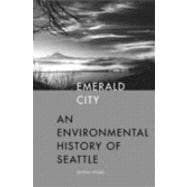
Note: Supplemental materials are not guaranteed with Rental or Used book purchases.
Purchase Benefits
What is included with this book?
| Preface | p. xi |
| List of Maps | p. xiv |
| Acknowledgments | p. xv |
| Prologue: The Fish that Might Save Seattle | p. 1 |
| All the Forces of Nature Are on Their Side: The Unraveling of the Mixed World | p. 12 |
| The Work Which Nature Had Left Undone: Making Private Property on the Waterfront Commons | p. 44 |
| The Imagination and Creative Energy of the Engineer: Harnessing Nature's Forces to Urban Progress | p. 86 |
| Out of Harmony with the Wild Beauty of the Natural Woods: Artistry Versus Utility in Seattle's Olmsted Parks | p. 119 |
| Above the Weary Cares of Life: The Benefits and High Social Price of Outdoor Leisure | p. 154 |
| Junk-Yard for Human Junk: The Unnatural Ecology of Urban Poverty | p. 180 |
| Death for a Tired Old River: Ecological Restoration and Environmental Inequity in Postwar Seattle | p. 203 |
| Masses of Self-Centered People: Salmon and the Limits of Ecotopia in Emerald City | p. 230 |
| Epilogue: The Geography of Hope: Toward an Ethic of Place and a City of Justice | p. 265 |
| Notes | p. 281 |
| Index | p. 323 |
| Table of Contents provided by Ingram. All Rights Reserved. |
The New copy of this book will include any supplemental materials advertised. Please check the title of the book to determine if it should include any access cards, study guides, lab manuals, CDs, etc.
The Used, Rental and eBook copies of this book are not guaranteed to include any supplemental materials. Typically, only the book itself is included. This is true even if the title states it includes any access cards, study guides, lab manuals, CDs, etc.